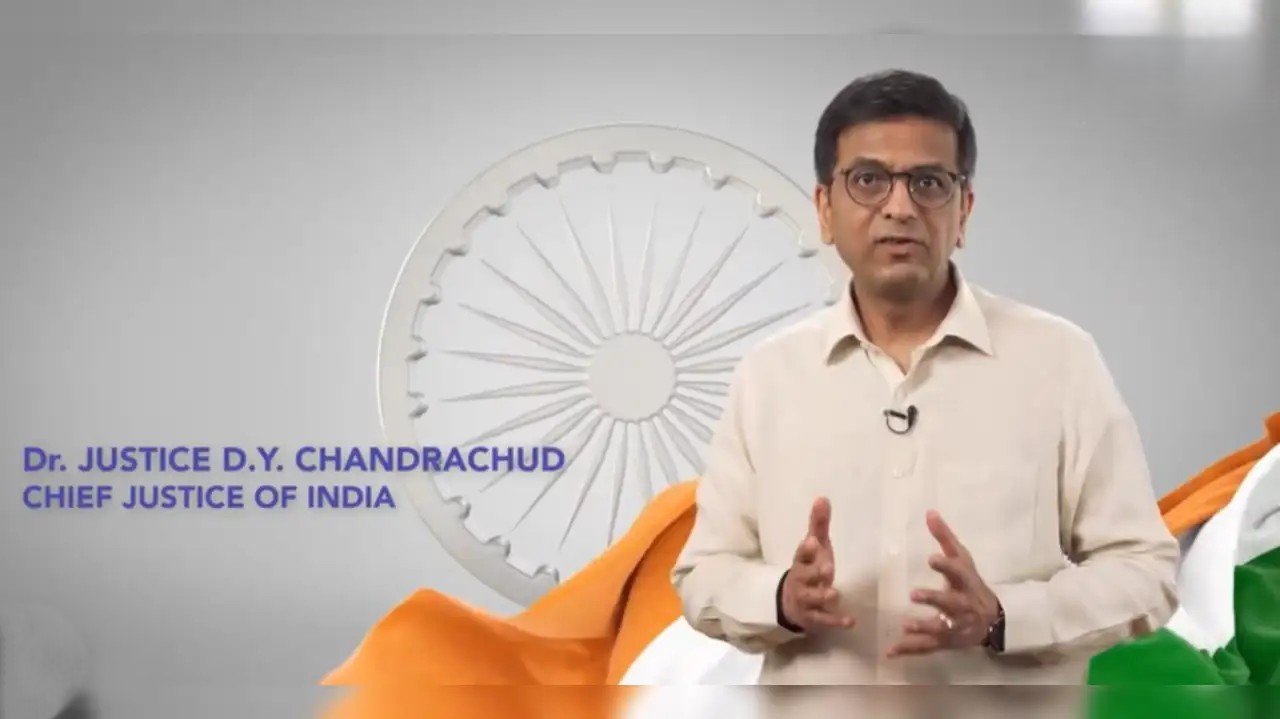Former CJI DY Chandrachud tells JPC One Nation One Election Bill is not unconstitutional but requires significant constitutional clarity.
Subheading:
In a rare address to the Joint Parliamentary Committee, ex-CJI Chandrachud stated that the One Nation One Election Bill was not inherently unconstitutional, but needs legal fine-tuning.
Former Chief Justice Sounds Caution on Constitutional Complexities
In a significant behind-closed-doors meeting with the Joint Parliamentary Committee (JPC) examining the One Nation One Election Bill, former Chief Justice of India, DY Chandrachud, reportedly clarified that while the proposed law is not unconstitutional per se, it does contain substantial constitutional ambiguities that need to be addressed before enactment.
The interaction, held as part of the JPC’s ongoing consultations with legal experts, constitutional scholars, and former judges, highlighted key procedural and structural issues within the bill that could impact federalism, electoral fairness, and democratic timelines.
What Is the One Nation One Election Proposal?
The One Nation One Election initiative proposes synchronised elections to the Lok Sabha, state legislative assemblies, and potentially even local bodies, with the objective of reducing election costs, avoiding frequent imposition of the Model Code of Conduct, and ensuring smoother governance.
The Bill is one of the Narendra Modi government’s most ambitious electoral reforms, and has been under intense review by legal experts and opposition parties, many of whom have raised red flags about its feasibility and impact on the constitutional framework.
Chandrachud’s Comments: Not Illegal, But Not Easy
Sources close to the JPC confirmed that Justice Chandrachud, who demitted office as CJI in November 2024, remarked that:
“The Bill does not violate any specific constitutional provision outright. However, implementation without constitutional amendments would be fraught with inconsistencies.”
He reportedly pointed out that the Indian Constitution does not mandate simultaneous elections, but also does not prohibit them. Therefore, while the concept is not inherently illegal, execution would require:
- Amendments to multiple articles, especially those governing legislative tenures (Articles 83 and 172),
- Redefinition of federal autonomy in electoral matters,
- And a well-defined framework for premature dissolution and re-election scenarios.
Practical & Legal Challenges Highlighted
During the session, Chandrachud is said to have addressed the practical complexities the Bill presents:
- Mid-term dissolution of a state assembly would disrupt the synchronised cycle.
- Forcing states to conform to a central election schedule could be interpreted as violating the federal spirit of the Constitution.
- Logistical readiness of the Election Commission of India (ECI), especially concerning manpower and Electronic Voting Machines (EVMs), is also a factor.
He advised that any move toward synchronised elections must be preceded by constitutional clarity and strong institutional safeguards to ensure that the right to democratic representation is not compromised.
Opposition to the Bill Gathers Momentum
While some ruling party MPs have welcomed Chandrachud’s nuanced support, the opposition has taken the former CJI’s remarks as validation of their concerns. Senior Congress leader and committee member Manish Tewari said:
“Even the former CJI acknowledges that constitutional amendments are essential. We cannot allow a major electoral change through a simple legislative shortcut.”
Multiple civil society groups and regional parties have voiced apprehensions that synchronised elections could centralise power, weaken state autonomy, and affect minority representation.
You can follow more on such legislative developments via our Views & Debates section.
Expert Opinions: Balancing Reform with Rights
Legal scholars have echoed Chandrachud’s stance. Constitutional expert Dr. Ruma Pal, speaking at a recent symposium hosted by The Legal Observer, noted:
“The real question isn’t whether it’s unconstitutional, but whether it’s democratically prudent. Synchronising elections is a procedural change with far-reaching consequences on the political structure.”
Some have argued that the first step should be consensus among states, many of which have expressed unwillingness to dissolve or extend their assemblies arbitrarily.
Constitutional Amendments Will Be Critical
As the JPC prepares its report, it is becoming clear that at least five constitutional amendments may be necessary to operationalise the One Nation One Election framework. These include changes to:
- Articles 83 and 172 (terms of Parliament and State Assemblies)
- Articles 85 and 174 (dissolution and convening of legislatures)
- Article 356 (President’s Rule scenarios)
- Representation of the People Act, 1951
Legal analysts agree that passing such amendments would require political consensus, which currently appears elusive.
Way Forward: More Debate, More Deliberation
The JPC is expected to hold additional meetings with constitutional experts in the coming weeks. The Election Commission, former Chief Election Commissioners, and state legal representatives will also be consulted before any recommendations are finalised.
As a matter that cuts across constitutional, electoral, and federal lines, it is likely that any final version of the Bill will be subject to judicial review if implemented without broad consensus.
Stay updated on all developments via our National News Feed and Most Popular sections.
Watch our legal panel break down Chandrachud’s remarks and their implications on our YouTube Channel.




